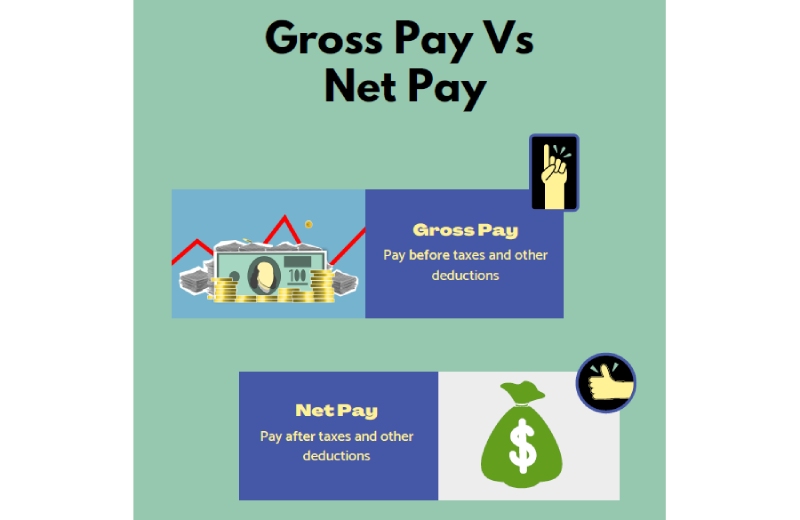
It’s tax season again. It’s simple to become confused with all the forms and applications you have to fill out.
Whether this is your first time filing or you’ve been doing it for years, you should record your total income for the tax year.
This article explains net pay, including what it is, how to calculate it, and how it differs from gross pay.
The money that employees receive after payroll deductions are deducted from their gross pay is known as their net pay. Taxes, benefits, wage garnishments, and other deductions are among them.
Net pay is, to put it simply, the amount of money you keep after taxes.
For example, if a person receives $1,200 a week after deductions of $160, their weekly net pay will be $1,040.
Before payroll deductions, an employee’s gross pay is their total earned wages.
Net income, sometimes referred to as net earnings, is a company’s total revenue less its operating expenses. This covers the price of the goods as well as depreciation, taxes, interest, running costs, and selling, general, and administrative expenses.
Profitability is determined by net income.
What you take home is your net pay. It’s not a guarantee that you will receive the same net pay as someone who earns the same as you. Certain taxes, benefits, wage garnishments, and other deductions have an impact on net pay.
A person’s net pay may differ from yours depending on a variety of factors, such as their filing status, tax credits, children and dependents, and marital status.
Regarding your employees’ net pay, employers have a few things to think about. For example, employer FICA taxes, benefits, and contributions to retirement plans are subtracted from an employee’s net pay before they are received.
Furthermore, net pay is the amount an employee takes home from their job rather than the amount it costs to employ them.
Monitoring your employees’ gross and net pay is essential for managing payroll taxes. Should there be any discrepancies between the two, you might wish to double-check the data. Penalties may follow if there are any problems.
A Complete Summer Skincare Guide by Blossom Kochhar Aroma Magic Summer is not just a… Read More
The United Arab Emirates has emerged as a global hotspot for luxury travel, attracting visitors… Read More
Google is introducing the standalone Gemini Enterprise app for Android, which will deliver its corporate-grade… Read More
Digital payments have changed how we handle money. Whether you are paying for a small… Read More
Taking care of your health and well-being doesn’t have to mean dramatic changes or strict… Read More
We often talk about growing up as if emotions mature on a perfect timeline, children… Read More